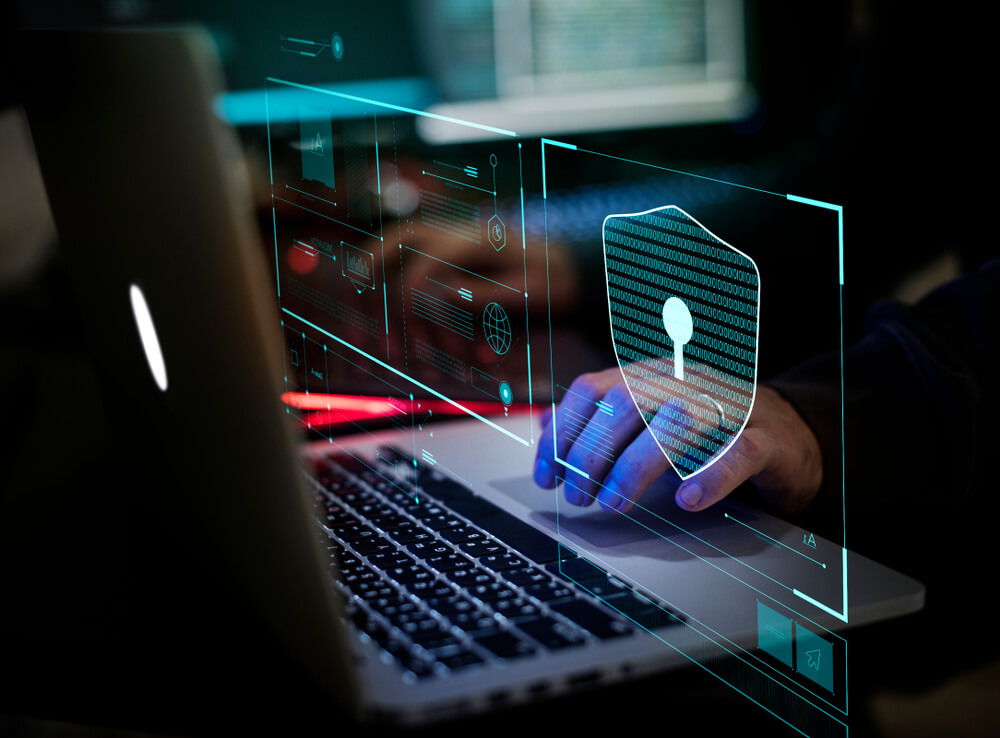In today’s day and age, people use the power of the internet for many things, starting from shopping, watching videos, listening to music, and even filing taxes. It’s no secret that the rapid expansion of the World Wide Web in the past couple of decades has brought amazing things upon us and gave us the opportunity to handle our chores from the comfort of our home or office. However, with every great thing comes the other, which is sometimes not so great. Cybersecurity is a concept most people aren’t really aware of or are maybe not interested in because it can be rather complex. However, if you aren’t aware of the importance of cybersecurity, and you fail to apply precautionary measures, chances are you’re going to end up having issues. And those issues can lead to that are not only hard to solve but can also jeopardize your safety, and safety of others. The best way to determine why we need cybersecurity in the first place is to look at the consequences of examples where cybersecurity was lacking.
What Is Cybersecurity?
Before we dive deeper into the subject, it’s probably a good idea to break down what cybersecurity does into a more comprehensive concept. The main goal of cybersecurity is to protect the user, their data, and any other sensitive information that should be kept away from curious eyes.
Levels of Cybersecurity
There are many levels of cybersecurity, starting from the rudimentary single-user level up to massive corporate, political, and business levels that require top-notch protection. For instance, companies like Apple or Google would require the highest levels of cybersecurity since they are responsible for the safety of data that entails hundreds of millions of people, It’s no secret that cybersecurity has become an integral part of the digital world, especially since billions of people depend on it. For example, we have seen instances in which hackers managed to swing political elections by compromising the network as well as electronic votes. This example only is which is yet another indicator of why cybersecurity is important.
- Cyber Security Threats on a National Level
As we’ve briefly mentioned, hackers can swing elections, but that’s not the only threat a nation with subpar cybersecurity is facing. For example, the Social Security Administration in the United States has more than a few devices connected to the internet at all times. Adding individual points of failure and attack vectors to the equation is dangerous because the possibility for breaches and hacks rises exponentially. This means that the SSA has to devote ample resources to cyber protection and protect sensitive data of millions of people. Unfortunately, breaches happen even at the highest level, and some networks can and have fallen victim to malware, ransomware, and other forms of cyber-attacks. This can be attributed mainly due to human error, but also because of the lack of proper cybersecurity measures.
Instances of Large Hacks in Recent Years
As we’ve mentioned earlier, in order to comprehend the importance of cybersecurity, we have to look into some of the breaches that could and have caused serious predicaments. Facebook’s user records were hacked, exposing more than 540 million user records. The social media giant was using Amazon’s cloud services, it got hacked, and the damage was most noticeable when the Cambridge Analytica affair was publicized. Another web giant, Yahoo, suffered a breach that affected more than three billion customer accounts. While the enormous cost of the hack was over $350 million, it’s fair to say that the sheer loss in reputation and credibility cost Yahoo much, much more in the long run. The National Health Service (NHS) in the UK was temporarily disabled due to a simple ransomware attack, which resulted in canceling scheduled operations and brought NHS to its knees. This particular attack was pretty embarrassing for the UK government since it could have been prevented with rudimentary security software. The aforementioned instances are only the tip of the iceberg, and according to some recent studies, there are more than 4000 active cyber-attacks happening every day. It goes without saying that top levels of cybersecurity should be mandatory for every business or company that handles sensitive user data.
Why Are Companies Targeted by Hackers?
Most people think that nefarious hacker attacks are something hackers do for fun or clout, but there is much more to it than meets the eye. A massive percentage of cyber-attacks are done primarily for financial gain, especially when large companies are targeted. For example, online retailers like Amazon, Walmart, and Target are rather lucrative targets because they deal with millions of people and more importantly – their personal data. Once a breach happens, the hacker (or usually a group of hackers) gains access to sensitive data and they can do whatever they want with it. In most cases, they sell personal information to other parties, mostly on the Dark Web since it’s not regulated nor under the scrutiny of most governments. Needless to say, you wouldn’t want your address or credit card number to end up in the wrong hands because it’s nearly impossible for you to protect yourself against it. In most cases, the best thing you can do is cancel your credit card and file a report to the authorities.
How Can You Protect Yourself?
If you’re a customer of Amazon, Facebook, Google, and other internet giants, there is unfortunately very little you can do in order to protect yourself from breaches. However, it’s important to keep in mind that these massive companies use super-high levels of cybersecurity, so the possibility of them being hacked is low but not zero. On the other hand, your computer at home could also be a tempting target for ransomware and cyber-attacks in general. In this case, there are many things you can do in order to protect yourself and prevent nefarious entities from gaining access to your home network.
The first thing that comes to mind when talking about network management is using antivirus/malware software. Make sure you use software that has been proven to work and is published by reputable companies rather than downloading dubious software from the dark corners of the internet. Another thing most people tend to oversee is the danger that lurks behind suspicious links. Many of us have fallen victim to this particular problem, and it’s definitely not something you can easily solve, especially if you happen to stumble upon ransomware that encrypts your data. Therefore, the best thing you can do is to avoid clicking on links that seem suspicious. Curiosity sometimes wins, but rest assured, you haven’t won a million dollars, and you’re not the 999,999th visitor. If you would like to know more about what cybersecurity does, ransomware, and things you can do to protect yourself and your data, don’t hesitate to read our other articles! We aim to bring internet security closer to our readers so that you know what to expect in case you stumble upon potential threats in the wild.



